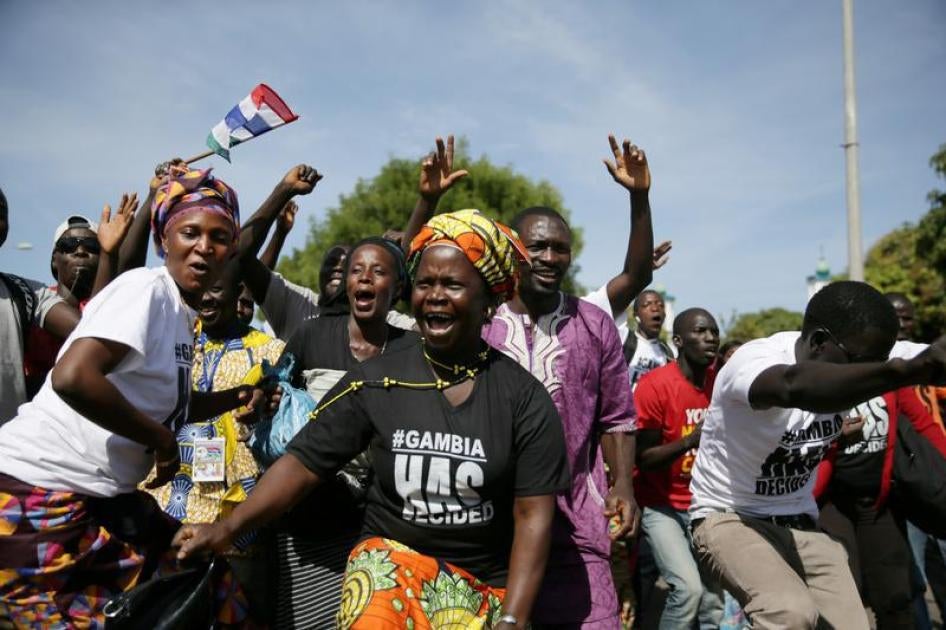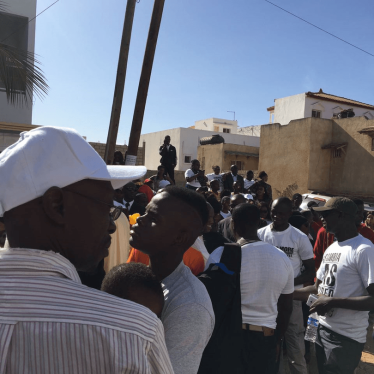“This is the new Gambia,” Jobe, a Gambian taxi driver told me, as I arrived in the country for the first time since the inauguration of President Adama Barrow. Three months after erstwhile strongman Yahya Jammeh left Gambian soil, the capital, Banjul, is buzzing and Gambia, known as the “smiling coast of Africa,” is still celebrating the end of more than two decades of dictatorial rule.
I have traveled regularly to Banjul over the past 20 years to attend the African Commission on Human and Peoples’ Rights, whose presence in Gambia belied the arbitrary arrests, torture, and enforced disappearances committed by the government during the Jammeh era.
Since Jammeh’s defeat in the December 2016 presidential elections, Gambia has promised to become the “human rights capital of Africa.” Barrow’s government has emptied jails of political prisoners, renewed its commitment to the International Criminal Court, and overseen legislative elections deemed free and fair by international observers.
This week, Gambians and friends of Gambia from many walks of life gathered for a conference to consider how to build on this early promise, and create the laws, institutions, and values necessary to protect human rights and secure the rule of law for the country.
A key question posed at the gathering was how to address the terrible crimes of the past to ensure a better future. The government has announced plans to create a truth, reconciliation, and reparations commission, to begin later this year, that would help families learn the fate of their loved ones and provide closure to victims.
And while the government has also promised thorough investigations into Jammeh-era abuses, there is concern that setting up a truth commission might cause criminal investigations to be delayed, or even forgotten. Yassin Senghore, a Gambian lawyer and human rights activist, told me, “Gambian victims know that Jammeh-era judges and courts failed to protect them. They don’t want to be cast aside by the justice system a second time.”
When I addressed the conference, I said that while truth commissions can be meaningful, they should always be part of a wider, complementary effort to bring human rights violators to justice. At a time when the global human rights movement is looking for flickers of light in an ever-darkening world, Gambia has the chance to show that, as the home of Africa’s flagship human rights institution, the values of justice and human rights still burn bright.
|
Dispatches
Talking Human Rights in the New Gambia
Truth Commission Should Complement Justice for Jammeh-era Crimes
Your tax deductible gift can help stop human rights violations and save lives around the world.
Most Viewed
-
June 3, 2025
“They’re Ruining People’s Lives”

-
January 25, 2024
“We’re Dying Here”

-
November 25, 2019
A Dirty Investment

-
April 27, 2021
A Threshold Crossed

-
November 19, 2012
Losing Humanity




